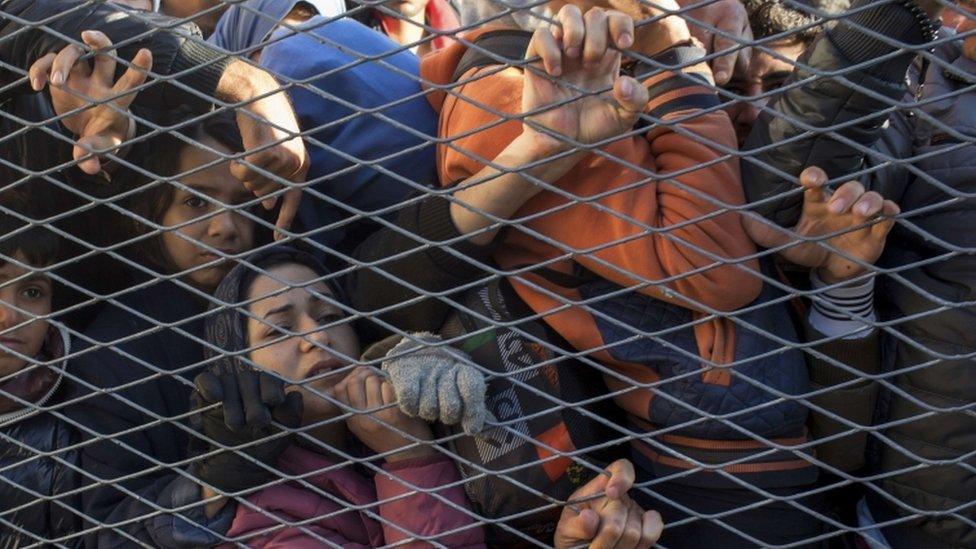UK to give sanctuary to unaccompanied refugee children
- Published
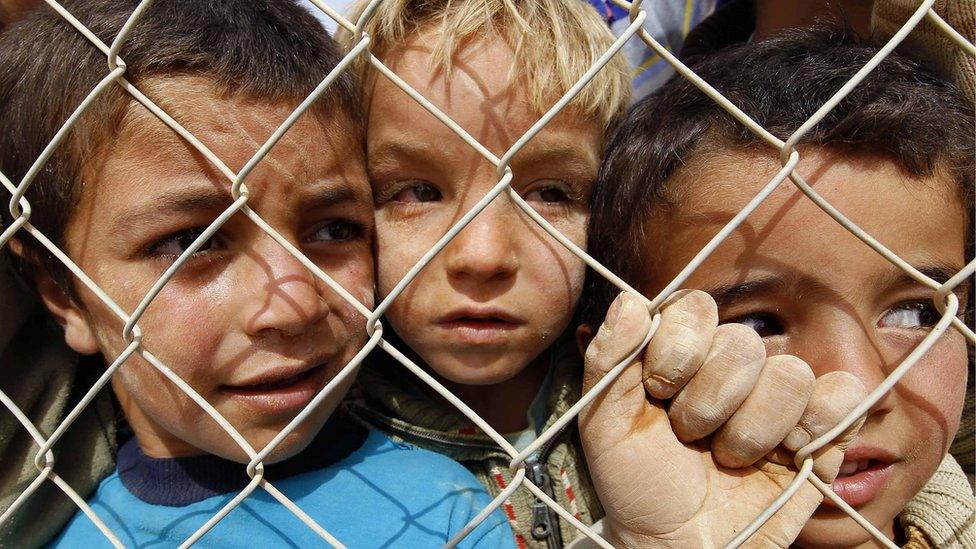
The UK will accept children from refugee camps in the Middle East
The UK is to accept more unaccompanied child refugees from Syria and other conflict zones - but the government has not said how many.
The Home Office will work with the UN High Commissioner for Refugees to identify "exceptional cases" from camps in Syria and neighbouring countries.
The UK is to take 20,000 refugees from Syria by 2020 - but campaigners want it to take 3,000 children from Europe.
The PM said doing so might spur more refugees to risk "lethal" journeys.
Save the Children said child refugees in Europe were "incredibly vulnerable".
The government also said it was giving £10m to help vulnerable refugee minors already in Europe; some can be brought to the UK "where it is in their best interests".
Campaigners welcomed the announcement on child refugees, but Labour warned about a "false distinction between refugees in the region and refugees in Europe". UKIP said £10m was a "minuscule amount".
Migration to Europe in graphics
The UK has already accepted about 1,000 refugees from Syria under the Vulnerable Persons Resettlement Programme, which the government expanded last year.
But Prime Minister David Cameron has come under pressure from Labour and the Liberal Democrats, as well as from within his own party, to do more.
He has faced calls to prioritise children who have been separated from their families as a result of the five-year war in Syria, conflicts in Iraq and Afghanistan, and large-scale migration from Eritrea.
'Right approach'
Mr Cameron insisted the government's approach was "compassionate", and "no country in Europe has done more than Britain to help with the Syrian refugee crisis".
"I think it is right our approach to take refugees from the region, not encouraging them to make the difficult, potentially lethal, journey to Europe," he told Sky News.
He also rejected criticism of his description in the Commons of refugees in a Calais camp as a "bunch of migrants", saying he did not accept that his words were unpleasant.
"No, I was very clear what I meant yesterday, which was to say Labour have an open door migration policy," he said.
Labour leader Jeremy Corbyn has urged the PM to apologise for his "dismissive language and tone" which he said "demeans people's suffering".
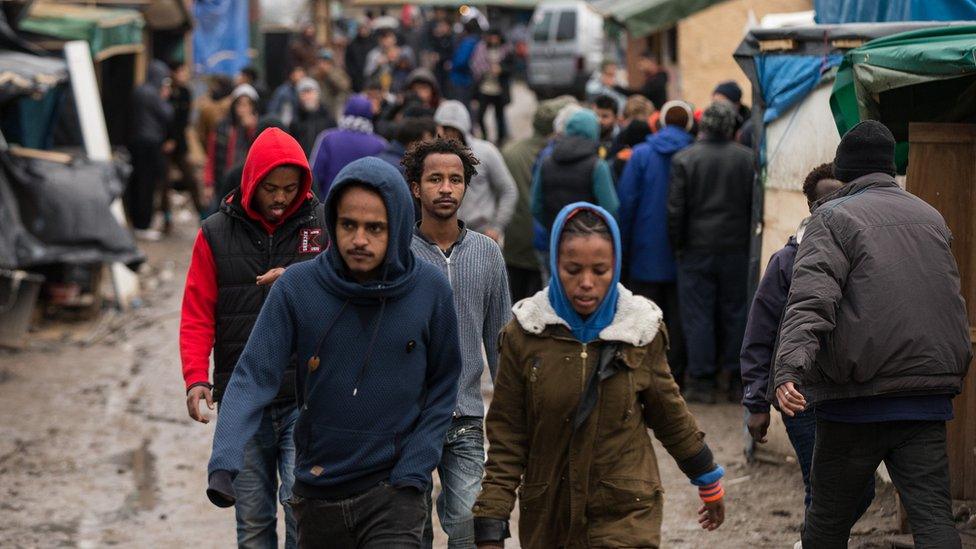
Thousands of migrants hoping to reach the UK have been staying in a camp known as "the Jungle" in Calais
The Home Office has not put a figure on how many under-18s will be taken in as part of the joint initiative with the UNHCR, but it confirmed those accepted would be in addition to the existing 20,000 figure.
Sources have indicated the numbers involved would not significantly increase the current 20,000 commitment.

Analysis
BBC political editor Laura Kuenssberg
The prime minister has been under pressure - just as in the summer months when the full scale of the migrant crisis became clear - to make more effort to help the most vulnerable among the hundreds of thousands of people on the move.
In recent days that pressure has taken the shape of calls from the Liberal Democrats and Labour, and campaign groups like Save the Children, to open Britain's doors to 3,000 children, alone and potentially in danger on the migrant trail in Europe.
Just hours after the PM was accused of a "disgraceful" tone towards those in need - calling them a 'bunch of migrants' - the government has given a partial answer to its critics.
Read more from Laura here

Home Office minister James Brokenshire said the government scheme would focus on displaced children in Syria and the Middle East - not those already in Europe.
He said the UNHCR would help to identify "exceptional cases" to be resettled in the UK but added that the "vast majority" were better off staying in the region.
Asked about child refugees in camps across Europe, he said: "We are providing aid and support, millions of pounds to other European countries - to the western Balkans as well - to see that they get that help and support they need as early as possible."
The government says some migrants in Europe could be allowed to come to Britain under the terms of the Dublin convention on asylum - if they already have family members living lawfully in the country.
David Cameron has faced calls to apologise over his use of language
Kirsty McNeil, from Save the Children, said there was "confusion" over exactly what the government was proposing.
"There does seem to be action in Italy and Greece to help the authorities identify more children who are already in Europe and get them to safety here in the UK," she told BBC Radio 4's Today programme.
However, she said it appeared they would be eligible to come only if they had a "family connection".
She said more needed to be done to help child refugees in Europe, saying thousands "simply disappeared" from the Italian system last year "into the hands of traffickers, or... the sex trade or the drugs trade".
Yvette Cooper, chair of Labour's refugee taskforce, said the UK "cannot turn our backs on children who are already in Europe and desperate families who have already come to Europe because they are fleeing persecution".
David Simmonds, from the Local Government Association, said councils would need extra support to take care of more unaccompanied children.

How is the UK helping?
One woman's story of fostering a 14-year-old Afghan refugee
Under the Vulnerable Persons Relocation Scheme, external, the UK will accommodate 20,000 Syrian refugees
Refugees are being allowed to stay for five years, after which they can apply to settle in the UK
About £1.1bn of UK money is being used to fund humanitarian aid programmes in and around Syria
Charities, including the British Red Cross and Oxfam, are running appeals
Read more here

The additional £10m to help vulnerable refugee and migrant children in Europe will come from the overseas aid budget and be channelled through NGOs and UN agencies.
It is aimed at helping children facing "additional risks", to provide "safe places" for them to stay, and support a database to trace children, as well as counselling and legal services.
The figure of 3,000 child refugees was originally proposed by Save The Children, which said it would represent a "fair share" for the UK of the estimated 26,000 children who arrived in Europe in 2015 without any family.
- Published27 January 2016
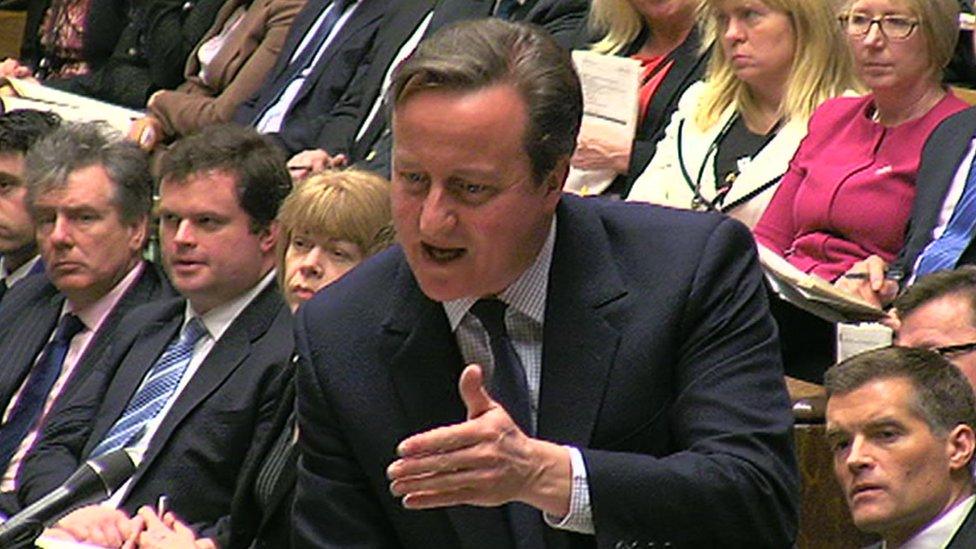
- Published24 January 2016
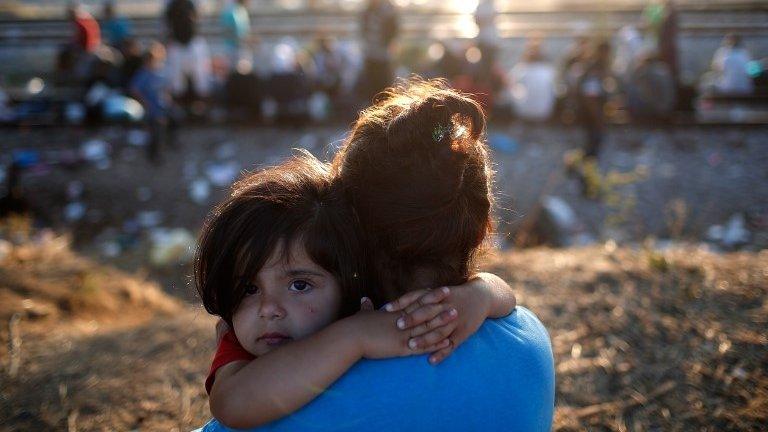
- Published20 January 2016
